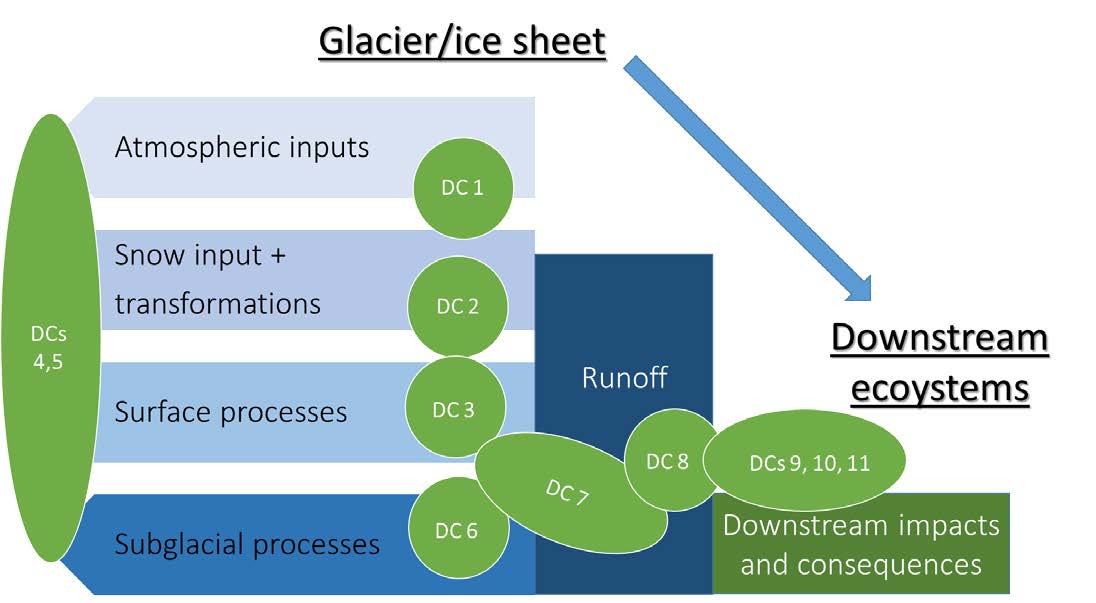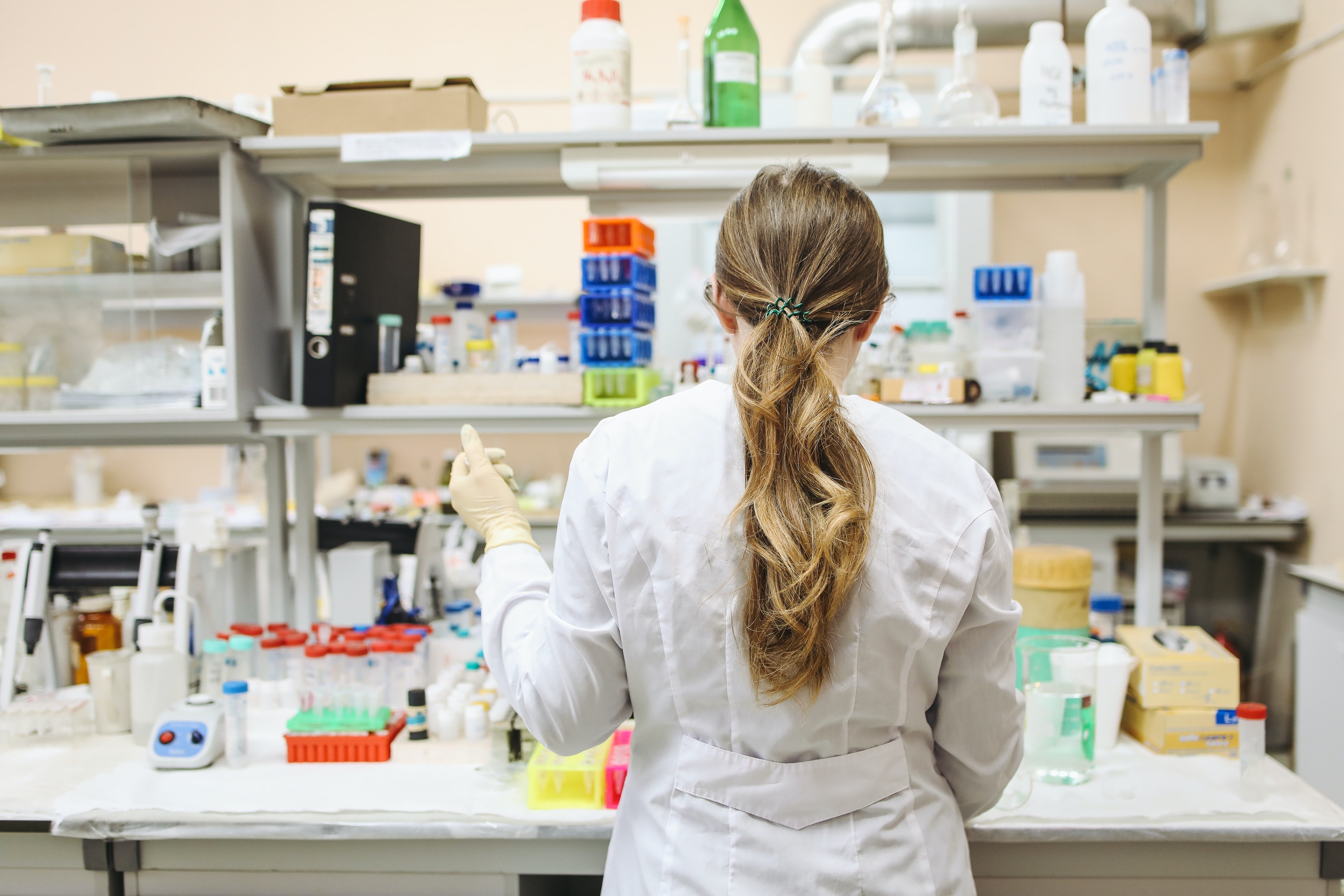PhD Projects
All ICEBIO fellows will be enrolled in PhD programs either at their host institutions or at partner institutions affiliated with beneficiaries.
Each PhD project will focus on an individual aspect of the glacier biome and all projects will become integrated through common use of fieldwork samples, complementary analyses and common experimental work.
DC1 will investigate the selectivity of aeolian microbes to colonize glacier surfaces. This will link with DC2 (also working with a range of omics in snow samples) and DC3 (providing data on fluxes between different surface habitats). DCs 1, 2 and 3 also link with DC10 (using culturing and pathogen detection methods) to investigate the possible filtering of potentially hazardous microbial communities through the glacier biome. DC4 and 5 will provide new platforms and developments of proxies of microbial function and metabolism using total RNA and metabolomic approaches that can be used across the entire network. DCs 6, 7 and 8 will integrate different aspects of processes under the ice, from the mechanisms leading to the production of nutrients under the ice to its utilisation by microbial communities and its signature in glacial runoff. The ability for the inert, recalcitrant bedrock under glaciers to turn into a source of macro- and micro-nutrients (e.g. N, P, Si, Fe, Zn, Cu) and energy for life processes in downstream applications is further explored by DC9 (working with microbial communities developing from the glacial flour) and DC11 (focusing on the formation of biofilms in glacier streams).


